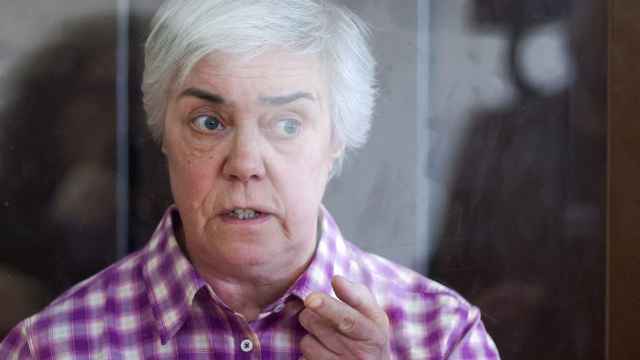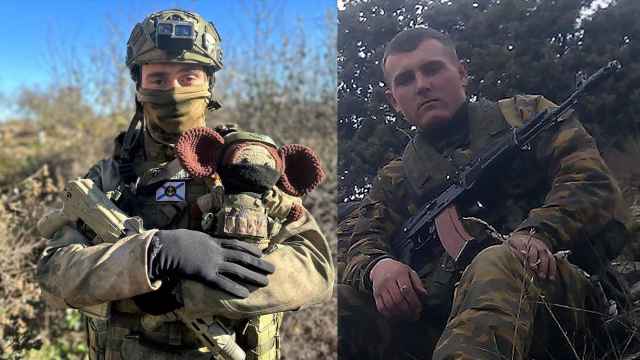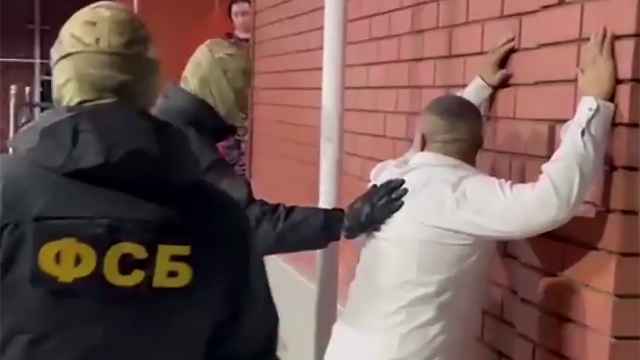St. Petersburg police Tuesday morning briefly held the director of a local art gallery from which a number of paintings were confiscated last week, including one of President Vladimir Putin and Prime Minister Dmitry Medvedev in women's underwear.
Police detained Tatyana Titova, head of the Museum of Power gallery, for unspecified reasons, prominent gallerist Marat Guelman wrote on his page, citing the gallery's owner, Alexander Donskoi.
Titova told the BBC that she was detained at 4 a.m. and released without explanation three hours later.
An unidentified police spokesman told Interfax that Titova was taken to a police station along with three other people, after a local resident complained about a group of "suspicious" people in his courtyard.
Titova and her colleagues were released two hours later after police examined their documents, the spokesman said, adding that none of them were officially detained.
Titova and her colleagues had gathered Monday night to prepare the exhibition for the gallery's reopening, Donskoi told Interfax. He said last week that he would reopen the exhibition Thursday with or without permission from the authorities, RIA Novosti reported.
Guelman wrote that authorities were "intimidating" Titova, but didn't elaborate.
Artist Konstantin Altunin last Tuesday fled the country after police confiscated four of his paintings from the gallery on suspicion that they were illegal. On Aug. 29 he requested asylum in France.
As well as the painting of Putin and Medvedev, police seized his works depicting Patriarch Kirill with a bare torso decorated with prison-like tattoos and St. Petersburg anti-gay lawmaker Vitaly Milonov against a rainbow flag background. His painting of State Duma Deputy and coauthor of the "gay propaganda law" Yelena Mizulina performing an acrobatic feat was also removed.
Having served as Astrakhan's mayor, Donskoi is now a businessman. He is also a political consultant, the curator of Moscow's Museum of Erotic Art Tochka G and the leader of the Party of Love.
A Message from The Moscow Times:
Dear readers,
We are facing unprecedented challenges. Russia's Prosecutor General's Office has designated The Moscow Times as an "undesirable" organization, criminalizing our work and putting our staff at risk of prosecution. This follows our earlier unjust labeling as a "foreign agent."
These actions are direct attempts to silence independent journalism in Russia. The authorities claim our work "discredits the decisions of the Russian leadership." We see things differently: we strive to provide accurate, unbiased reporting on Russia.
We, the journalists of The Moscow Times, refuse to be silenced. But to continue our work, we need your help.
Your support, no matter how small, makes a world of difference. If you can, please support us monthly starting from just $2. It's quick to set up, and every contribution makes a significant impact.
By supporting The Moscow Times, you're defending open, independent journalism in the face of repression. Thank you for standing with us.
Remind me later.





